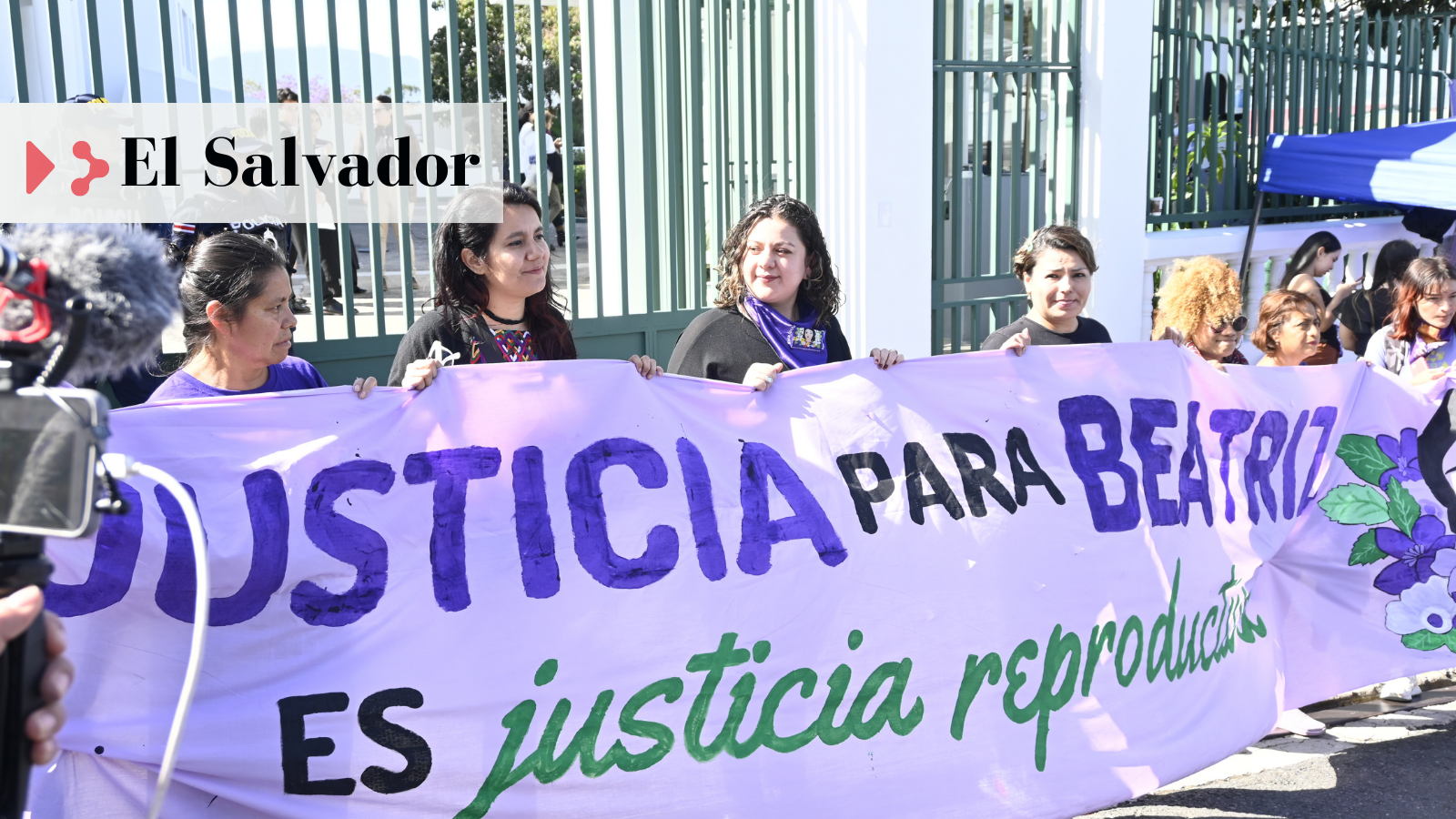






El Salvador, December 20, 2024.- “I just want to live,” said Beatriz 11 years ago. Beatriz was a young mother of a small child, living in poverty and battling lupus. In 2013, she faced a high-risk second pregnancy in which the fetus was diagnosed with anencephaly—a condition where the brain does not develop, making survival outside the womb impossible. Doctors recommended interrupting the pregnancy to protect her life and health, but due to El Salvador’s absolute abortion ban, the State denied her the procedure.
Today, the Inter-American Court of Human Rights issued a ruling in the case Beatriz and Others v. El Salvador, holding the Salvadoran State accountable for violating Beatriz’s human rights.
According to the judgment, the State is responsible for violating Beatriz’s rights to personal integrity, privacy, judicial protection, health, and a life free from violence, as well as the personal integrity rights of her family members. The Court emphasized:
“Beatriz’s medical circumstances imposed a special duty of protection, requiring her treating doctors to provide diligent and timely care, considering that her health could deteriorate over time. However, the lack of legal certainty regarding Beatriz’s situation led to bureaucratic and judicial obstacles, with contradictory responses from different State bodies.”
The ruling recognizes that Beatriz’s pregnancy was high-risk and that the healthcare she received occurred within a framework of legal uncertainty, which inhibited medical personnel due to fear of criminal liability. The Court stated: “Beatriz’s health was endangered due to the absence of clear protocols for her case, subjecting her to obstetric violence and profound anguish that affected her physical integrity.”
The Court ordered El Salvador to implement legal measures to provide medical personnel with legal certainty on how to proceed in pregnancies that endanger women’s health and lives.
For Delmy Cortez, Beatriz’s mother, the ruling is a pivotal moment: “I am grateful for this long struggle, which has finally brought a response. I am sure that Beatriz, wherever she is, feels satisfied with the fight we have carried out,” she said, addressing other mothers seeking justice for their children in El Salvador.
Humberto, Beatriz’s brother, expressed gratitude to the organizations that supported their fight and thanked the Court for this just ruling: “We want the State to listen to us and take responsibility. They failed Beatriz, and they are failing again by imprisoning Mauricio, Beatriz’s brother, under the state of emergency. We ask for his release because he is innocent.”
The organizations representing Beatriz and her family—Colectiva Feminista por el Desarrollo Local, Agrupación Ciudadana por la Despenalización del Aborto, Ipas Latin America and the Caribbean (Ipas LAC), and the Center for Justice and International Law (CEJIL)—emphasized that Beatriz’s case has shed light on the violence faced by women in El Salvador and beyond. They highlighted that this decision advances what Beatriz always wanted: that no woman should endure what she suffered.
Gisela De León, Legal Director of CEJIL, underscored that the Court’s ruling acknowledges what Beatriz and her family have claimed for years: that she did not receive the medical care the Salvadoran State was obligated to provide and that she was denied justice at the national level.
Fernanda Díaz de León, Advocacy Deputy Director at Ipas LAC, noted that the Court instructed the State to create regulations for healthcare personnel to know how to handle high-risk pregnancies, aligned with the highest standards of health, life, and women’s integrity protection. “It is crucial that the Court has also called for strengthening healthcare personnel’s skills to ensure proper application of these regulations, guaranteeing women’s right to health and a life free from violence in El Salvador,” Díaz stated.
Morena Herrera, a prominent feminist and human rights defender, president of Agrupación Ciudadana, and one of the advocates supporting Beatriz from the start, emphasized that justice has been served for Beatriz: “We are very satisfied that justice has been achieved for Beatriz. The Court recognized the violations of her human rights, including her integrity and health. The inadequate handling of her high-risk pregnancy caused suffering for Beatriz, Delmy, and their family. The Court has delivered justice by holding the State internationally accountable for these human rights violations.”
The organizations praised Beatriz’s family for their unwavering pursuit of justice and acknowledged the tireless support of the feminist movement and women’s organizations in El Salvador and globally. They reiterated that justice in Beatriz’s case is justice for all women.
From this moment forward, efforts will focus on demanding full compliance with the Court’s decision.
Help us continue this critical and urgent work with a donation!
DONATE NOW